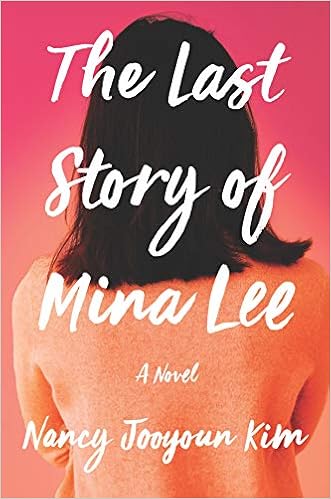3.5 Stars
The narrator of this Korean novel in translation is Areum. He suffers from progeria which causes him to age rapidly. Though he is sixteen years old, he has the body of an eighty-year-old. He decides to write his parents’ love story as a gift to them so the reader learns how they met, fell in love, and became parents at Areum’s age. As his health deteriorates, Areum reflects on the lives of his parents and his own as well.This book may bring to mind other novels about teenagers with terminal illnesses like The Fault in our Stars by John Green or Five Feet Apart by Rachael Lippincott, but this one is better. It is the characterization of Areum that is outstanding. He is an intelligent and sensitive young man who possesses a maturity beyond his physical age. For example, he has learned that “physical pain was a solitary endeavour” and that “when you love someone so much that it hurts, you have to run away.” On the other hand, his behaviour can still show glimpses of adolescence appropriate to his actual age: he would like to have a girlfriend and he is not always able to control his anger and resentment. What stands out is his close relationship with his parents; rather than complain about his situation, he often focuses on trying to cheer them up.
Areum’s life has major limitations, yet he tries to live fully despite them. He finds enjoyment in his family, books, and the friendship with his neighbour. When asked about what makes him want to live, he makes an extensive list: “the faint sound of the lid of that jar [of uncooked rice] . . . clichéd trailers of a melodramatic movie . . . when celebrities I like joke on TV . . . when the gruff owner of the store in my neighborhood cries as he watches a drama on TV . . . when I see evening clouds that have all kinds of colors mixed together . . . When I see a nice word I didn’t know before . . . when I see prints of soccer cleats on the schoolyard, old underlined textbooks, soccer players who cry when they lose a game, girls talking loudly on the bus, hair in my mom’s comb. When I hear my father clipping his toenails, my upstairs neighbor flushing the toilet, the happy-new-years that people repeat year after year, a middle-aged man doing a terrible imitation of someone famous on an afternoon radio program. When I see electronics that keep advancing beyond my imagination. When I hear the languid gospel choir on the radio while doing physical therapy. When I see the receipts piled up at home. . . . everything I see and hear around me is brilliant and gets me fired up.”
The ending is predictable, but the journey to that ending is engaging, made with an endearing protagonist, and eloquently described.
Note: I received an eARC from the publisher via NetGalley.













